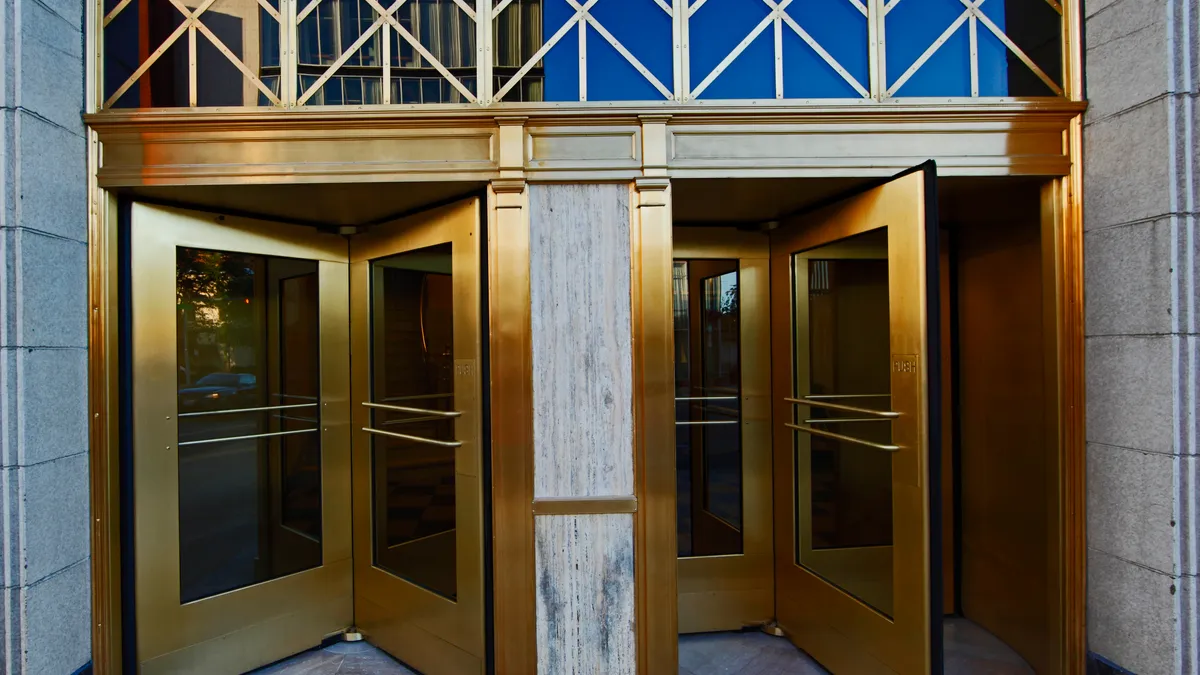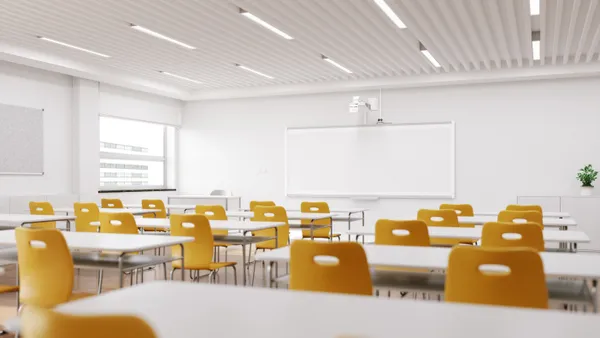Dive Brief:
- One-fourth of all schools in Washington, D.C. have had at least three principals since 2012, The Washington Post reports, and many of the affected schools are in the city's poorest neighborhoods.
- While the Post investigation couldn't reach individual principals for comment, DCPS Chancellor Antwan Wilson cited a high-demand workplace, which requires a lot of "emotional strength." Wilson, however, said in ideal situations, principals would stay in place at least five years to have a chance to implement their plans of action.
- While high, the article noted D.C.'s turnover rate is consistent with national trends — many systems throughout the country report 15%-30% change each year.
Dive Insight:
The K-12 system is not the only system facing high turnover at the top; higher ed is also dealing with an uptick in hasty departures and presidential shuffling. With mounting pressure across the education spectrum to do more with less, and increased demands of the job as funding for support staff is cut, the trend should come as no surprise. Presidents and principals are expected to raise academic performance metrics, fundraise, navigate tricky political systems, and on and on.
The key for district leaders as well as boards of trustees is to provide ample support and professional development for school leaders, but also to understand no transformation will take place in a year or two. Providing opportunities for campus leaders to build community with peers and identify and learn from mentors is just as important as encouraging them to build community with the staff, faculty, students and families of the school. When a new leader comes to the school, it is important to have transparent conversations assessing where the school is and where it needs to be, and to set realistic, incremental goals for improvement. In many cases, leaders are being removed for failing to right ships which were sinking long before their arrival, and in still others, good leaders are jumping ship because of a lack of support or dysfunctional political systems.














